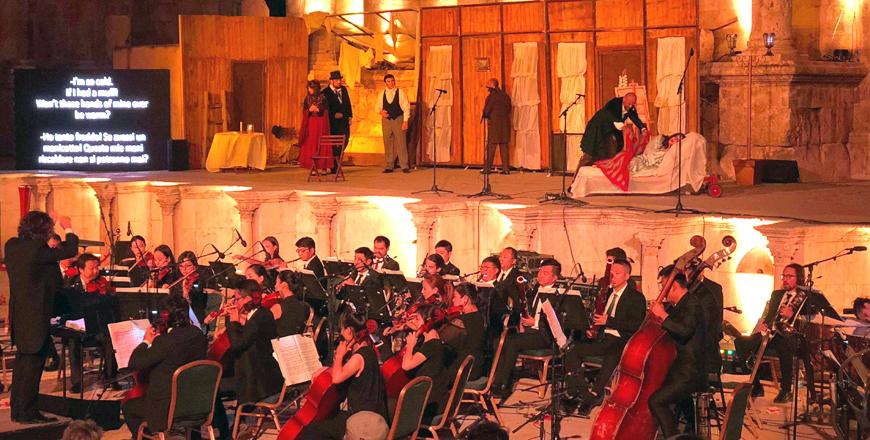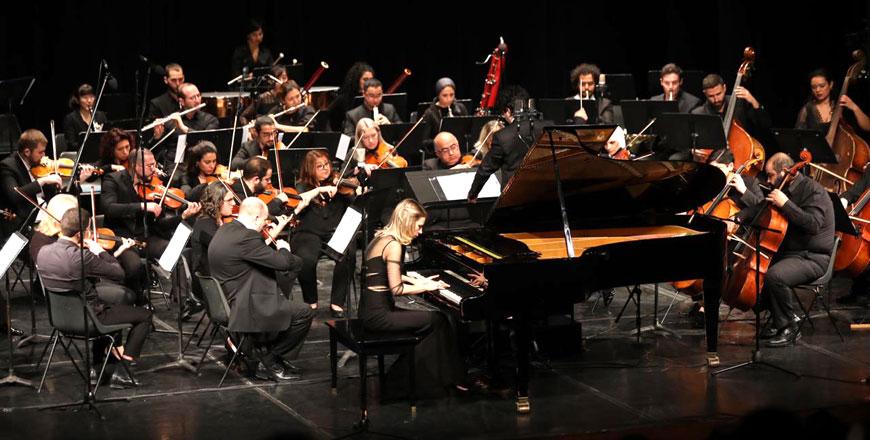You are here
Google teams up with orchestras to target classical music lovers
By AFP - Jun 27,2015 - Last updated at Jun 27,2015
NEW YORK — Google has teamed up with five leading orchestras in a bid to draw more classical music lovers to digital music as the streaming sector booms.
Dubbed Classical Live, the initiative will offer exclusive recordings through the Internet giant’s Google Play service from orchestras including the New York Philharmonic and London Symphony Orchestra.
Also involved are the Boston Symphony Orchestra, the Cleveland Orchestra and the Royal Concertgebouw Orchestra of Amsterdam, with Google hoping eventually to invite further participants.
The classical audience is smaller and older than the fan base for pop music but also skews wealthier, offering a potentially lucrative demographic.
In turn, orchestras seek to rejuvenate their audiences by embracing new technology.
Classical Live is “hoping to broaden and grow the audience for classical music, which is exactly synonymous with our ambitions, making great music available to the widest group of people”, said Kathryn McDowell, the managing director of the London Symphony Orchestra (LSO).
McDowell noticed that previous digital works have often been downloaded track by track rather than as a whole — evidence, she said, that the audience consists of newcomers exploring classical music.
“If you look at what the average student has on their playlist, it will include all sorts of things, because I think young people’s tastes are much more eclectic than we might give them credit for,” she told AFP.
“So we want to get out there in all the possible new platforms with the chance that they encounter the LSO.”
Declining revenue from CDs
Classical music is readily available on streaming platforms including industry leader Spotify, but Classical Live marks the most concerted effort to target the audience.
While streaming generally entails subscriptions for unlimited content, Classical Live will sell by recording. At an introductory price of $4.99, a full work can be either streamed or downloaded onto a device.
Digital music last year matched physical sales in revenue for the first time worldwide, led by a 39 per cent spike from streaming services, according to the International Federation of the Phonographic Industry.
Strong regional variations persist. CD sales remain dominant in Germany and Japan, which are two of the leading markets for classical music.
But Mark Volpe, the managing director of the Boston Symphony Orchestra, said that media sales — which once provided up to a quarter of the orchestra’s revenue — now contributed no more than a few hundred thousand dollars to an $87 million annual budget.
“It’s not about making money. It’s about promotion, it’s about furthering the cause of Western art music and Eastern art music or anything we’re playing,” Volpe told a news conference at Google’s office in New York.
Selective works
For the Cleveland Orchestra, historically considered among the Big Five in US classical music, the Google project marks a new direction after it long insisted on recording only with major labels.
“We’ve held back primarily because we always felt that big players had better promotion and better distribution and we wanted to keep ourselves out of that end of the business,” said the Cleveland Orchestra executive director, Gary Hanson.
But Hanson credited Google with leaving artistic and pricing control to the orchestras, while offering “real power” in terms of distribution.
More than 1 billion people use Google’s Android phones, although Google Play faces tough competition from Spotify as well as other rivals, including Deezer, Rhapsody, Tidal and a new service being launched by Apple.
The orchestras each tried to select signature pieces for Classical Live, which will initially carry 22 full works along with three for free.
The London Symphony Orchestra’s performances will focus on Mendelssohn, led by acclaimed English conductor John Eliot Gardiner.
The New York Philharmonic is presenting Verdi’s Requiem, directed by its conductor Alan Gilbert.
Related Articles
AMMAN — The historical site of downtown Amman's Roman Amphitheatre on Thursday evening resonated with the stirring melodies of Giacomo Pucci
Celebrated Venezuelan composer and conductor Pedro Mauricio Gonzalez Brito is in Jordan for a special concert.
AMMAN — On Saturday, 46 musicians from 11 countries came together as a chamber orchestra to perform Ludwig van Beethoven’s renowned masterpi
















